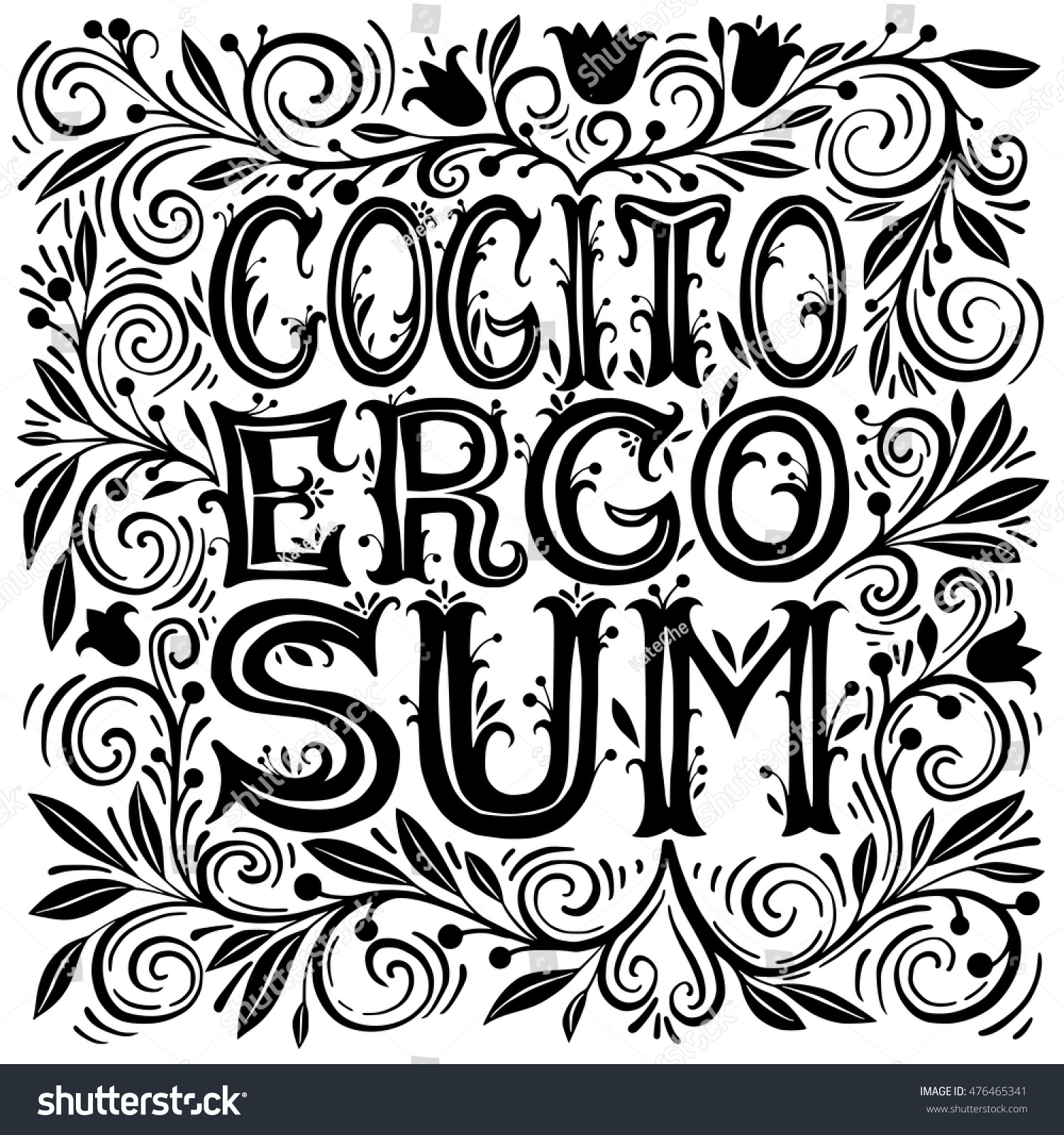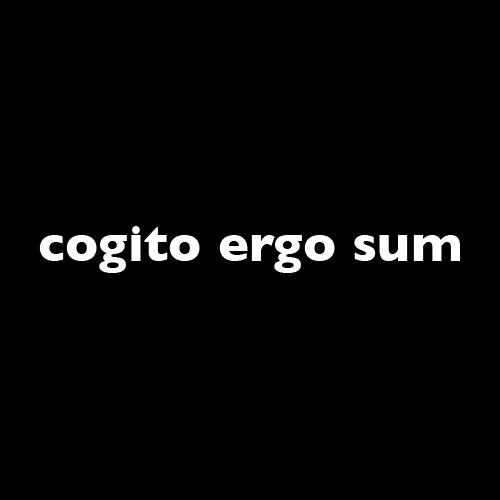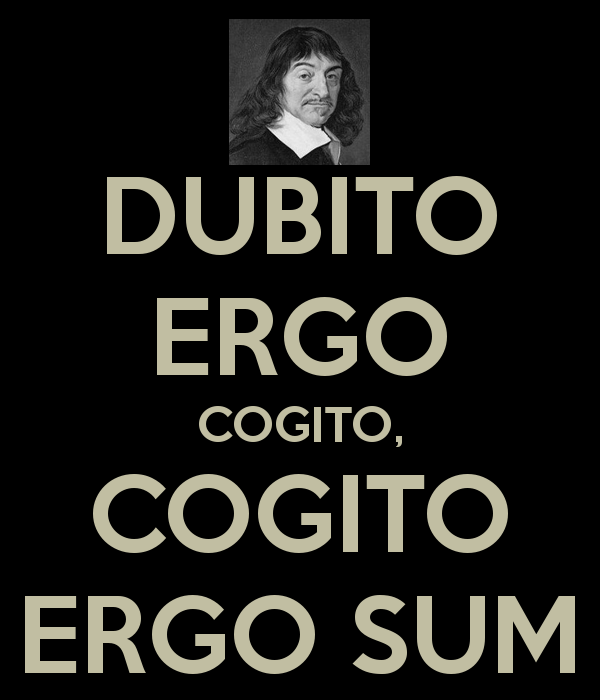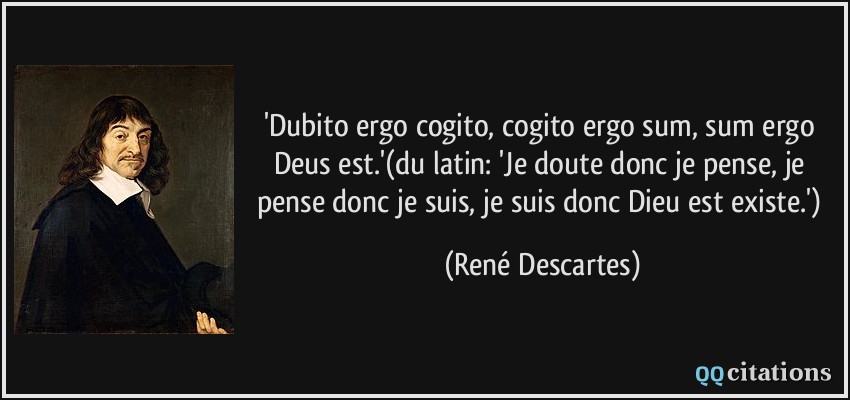A summary of Second Meditation, Part 1: cogito ergo sum and sum res cogitans in Rene Descartes’s Meditations on First Philosophy. Learn exactly what happened in this chapter, scene, or section of Meditations on First Philosophy and what it means.

René Descartes (1596—1650) René Descartes is often credited with being the “man of Modern Philosophy.” This title is justified due both to his break with the traditional Scholastic-Aristotelian philosophy prevalent at his time and to his development and promotion of the new, mechanistic sciences.





Seen and Heard. What made you want to look up cogito, ergo sum?Please tell us where you read or heard it (including the quote, if possible).
René Descartes (1596–1650) is widely regarded as the man of modern philosophy. His noteworthy contributions extend to mathematics and physics.
Cogito, ergo sum (Je pense, donc je suis) [1] est une formule latine [2] forgée par le philosophe espagnol Gómez Pereira en 1554, reprise ensuite par René Descartes [3] dont la création lui est souvent à tort attribuée.
Melvyn Bragg and his guests discuss one of the most famous statements in philosophy: “Cogito ergo sum”.In his Discourse on the Method, published in 1637, the French polymath Rene Descartes wrote a sentence which remains familiar today even to many people who have never heard of him.
Cogito ergo sum Method of doubt Method of normals Cartesian coordinate system Cartesian dualism Foundationalism Mathesis universalis Folium of Descartes



Cogito, ergo sum: Cogito, ergo sum, (Latin: “I think, therefore I am) dictum coined by the French philosopher René Descartes in his Discourse on Method (1637) as a first step in demonstrating the attainability of certain knowledge.
“Cogito, ergo sum” (Latin: “I am thinking, therefore I exist,” or traditionally “I think, therefore I am”) is a philosophical phrase by René Descartes, and it is a

La locución latina «cogito ergo sum», que en español se traduce frecuentemente como «Pienso luego existo», siendo más precisa la traducción literal del latín «pienso, por lo tanto soy», [1] es un planteamiento filosófico de René Descartes, el cual se convirtió en el elemento fundamental del racionalismo occidental.